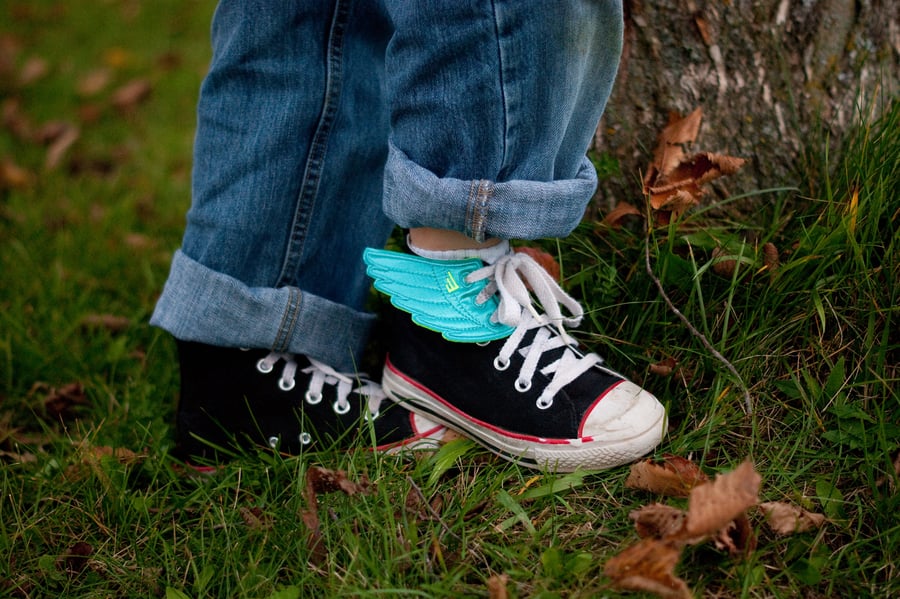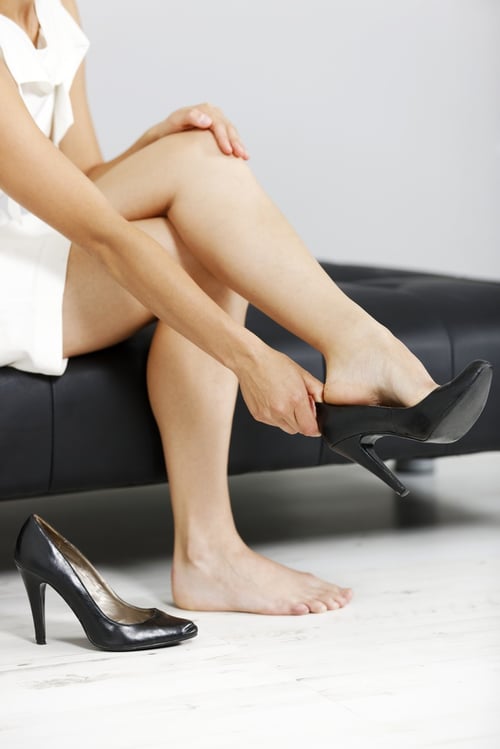
Children Get Bunions Too
Adults are not the only ones who get bunions, children get them too. But whereas adults often bring the bone deformity on themselves, by wearing ill-fitting shoes or ones that pay more attention to fashion than function, children are thought to inherit them.
Just as children tend to have hands and feet of the same shape and structure as one or the other of their parents they may be genetically disposed to develop bunions sometime during their lifetimes. Unfortunately, some develop them sooner rather than later
Symptoms of a Pediatric Bunion.
A parent who suffers from her own bunion may recognize the signs that her child's big toe is developing a bump at its base, pushing it out of alignment with the other toes so that it begins to crowd or lean over them. But whether a parent has a bunion or not, they should take the child to a foot specialist at the first sign that something is amiss. In fact, the child may be the one to complain that she is experiencing:
- Soreness and swelling at the base joint of the big toe
- Pain when wearing shoes
- Discomfort even when walking barefoot
- A burning sensation or numbness
- A cracking feeling at the toe's base
- Friction between the big and second toe.
But even if the child does not complain, parents may find they have trouble finding shoes wide enough for one of the child's feet and when they do locate one, the shoe tends to wear out in the area of the toe.
While bunions are ungainly and unattractive they are not considered a serious condition. But since their symptoms can mirror those of other medical disorders, parents should schedule a podiatric examination for the child at their earliest convenience.
Diagnosing Juvenile Bunions
A podiatric examination need not be feared, even by children who are terrified at the prospect of "going to the doctor's". In most cases, all the doctor will do is examine the child's foot's alignment, wiggle the affected joint to determine its mobility, and take an x-ray or two, Then he will ask the child to walk, so he can observe his or her gait and how she distributes weight on each foot.
Treating Juvenile Bunions
While a podiatrist may prescribe surgery for adults with bunions, this is not an option for children since their bones are still growing at least until their middle to late teens and their feet have yet to reach maturity. So barring any complications the podiatrist may suggest some of the following short term treatments in an effort to lessen the progression of the bunion:
- Nighttime splints to counteract the stretching of the muscles of the misaligned toe.
- Toe separators to be worn in the shoes to prevent the soft tissues surrounding the joint from adapting to the deviated position and to keep the joint flexible.
- Cushioning the bunion to reduce rubbing against the inside of the shoe.
- Applying cold compresses or ice to the area to reduce irritation, pain, and swelling.
- Anti-inflammatory medications if pain or swelling is a problem
- Exercises to strengthen the joining and increase its mobility
The Importance of Selecting Properly-fitting Shoes
When shopping for shoes, parents should make sure the shoe salesperson measures both feet and does it correctly. And once they are fitted, check to see that the widest part of the shoe's front accommodates the ball of the foot and that the heel of the shoe doesn't allow any slippage. And finally before purchasing the shoes, have the child spend time walking around the storm to make sure they feel comfortable while she is walking.
Possible Further Steps
The podiatrist may also prescribe custom orthotics to relieve any pressure on the bunion. And if the bunion gets to the point it is affecting the child's mobility, he may refer her to a physical therapist.
You may have noticed the use of her throughout this article. That's because girls are three times as likely as boys to inherit bunions. But whether boy or girl, the important thing is that the child be diagnosed as soon as possible so that she gets preventive treatment before years of further strain make bunion surgery unavoidable,
Does your child suffer from bunion pain? Contact us today so that we can help!






